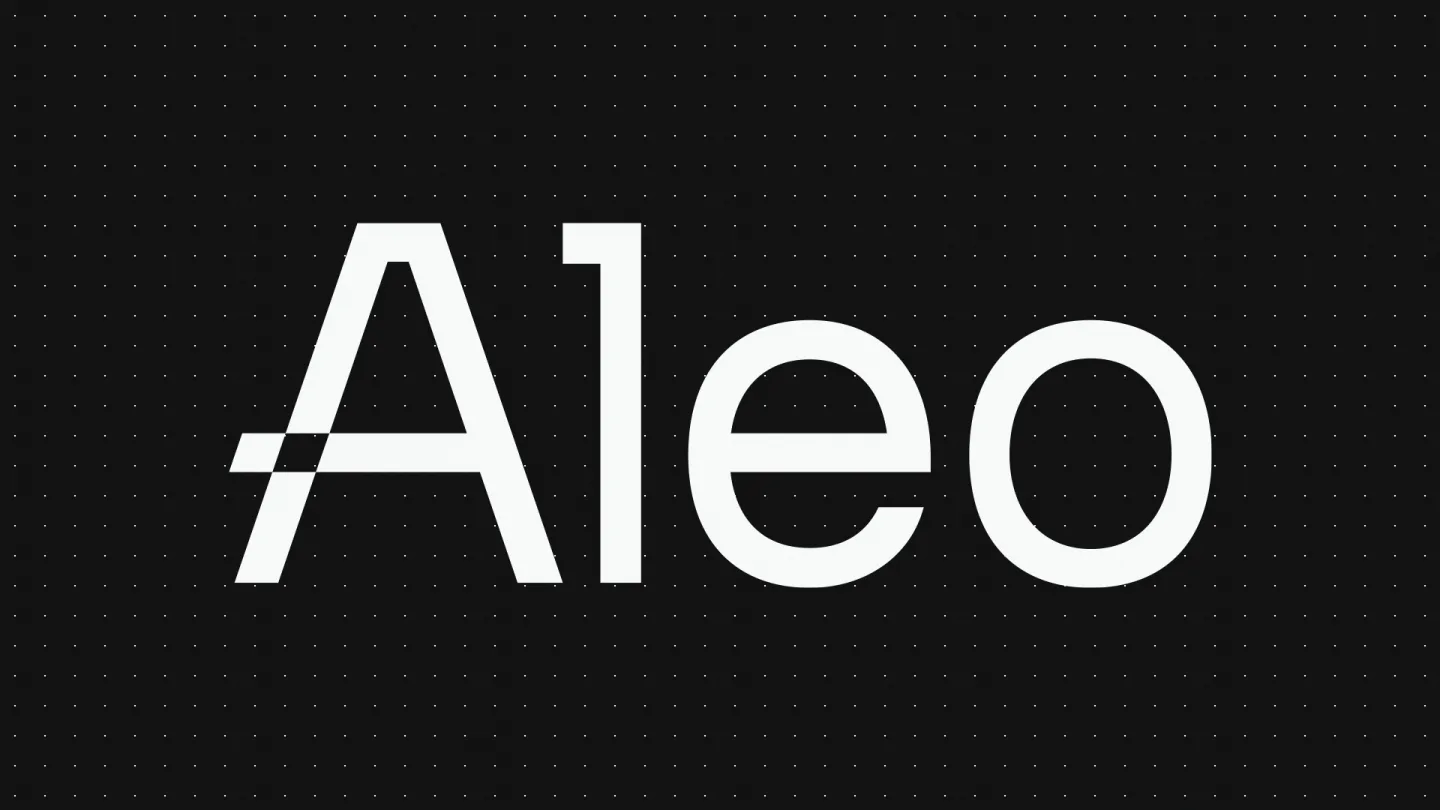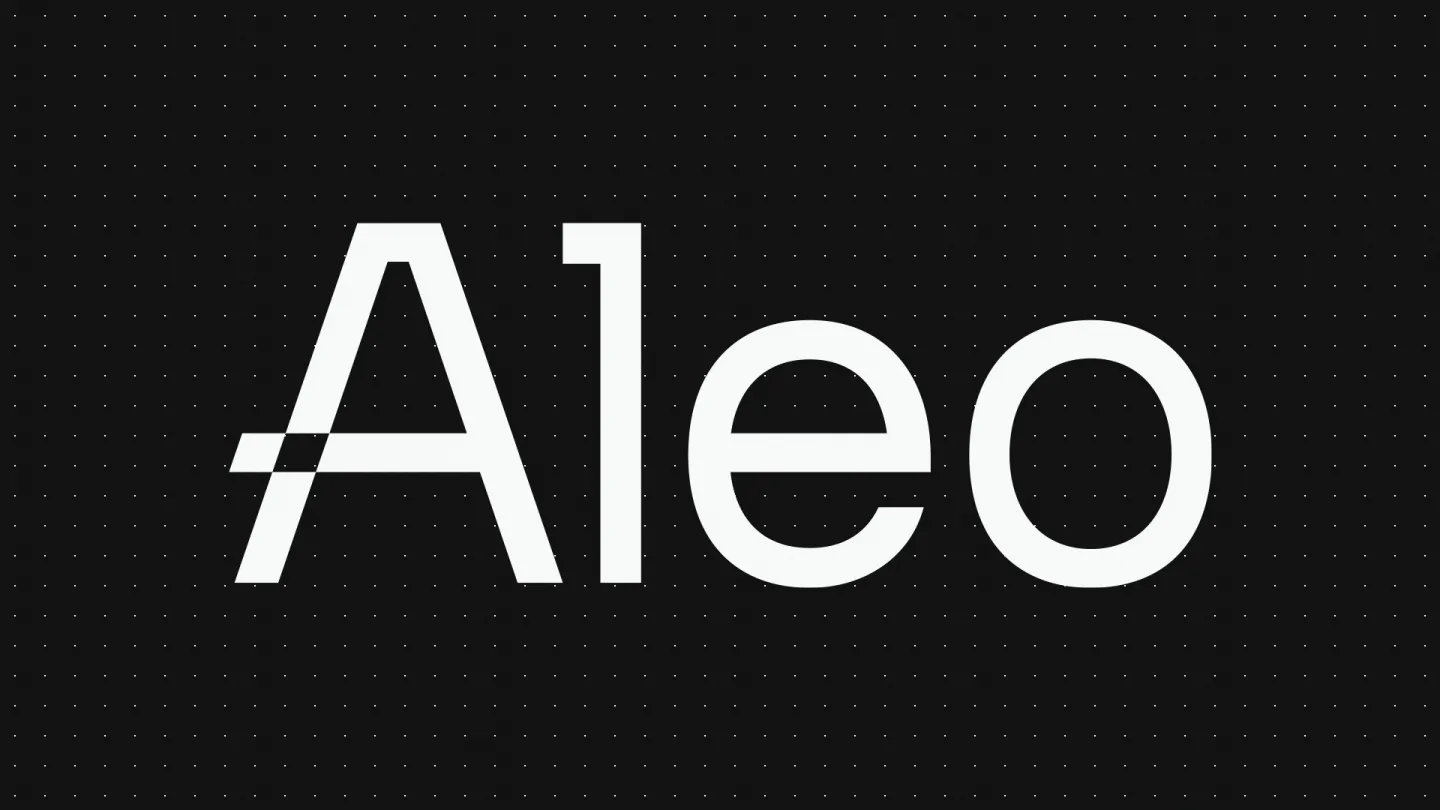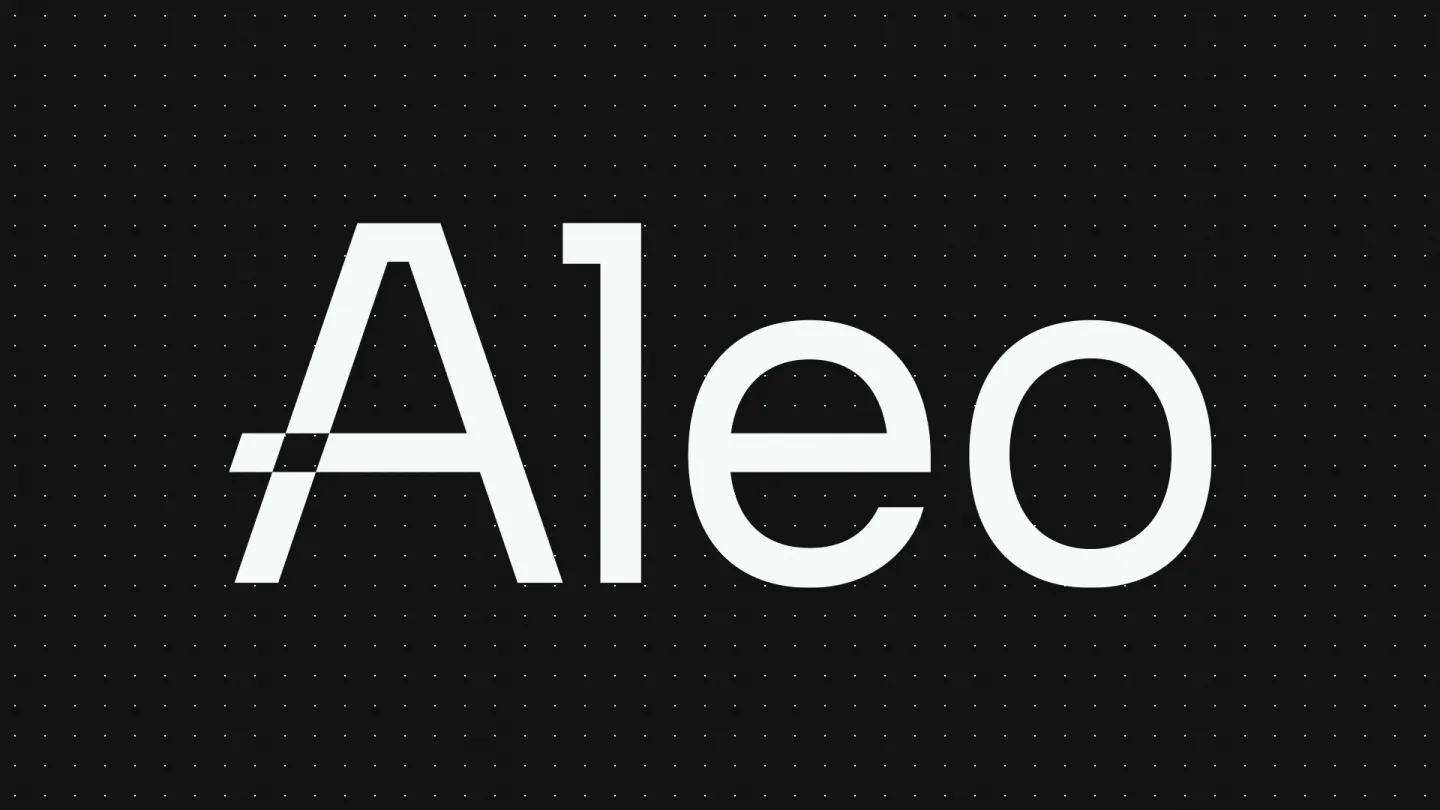Key Takeaways
- Zero-Knowledge Proofs: Aleo employs ZKPs to enable private transactions while maintaining scalability.
- Privacy-First Approach: It focuses on privacy in blockchain, supporting confidential smart contracts and secure computation.
- zkCloud: Aleo’s off-chain cloud computation platform provides privacy-preserving solutions for decentralized apps.
- Scalability: Aleo balances privacy with scalability through zkCloud.
- Developer Tools: The Leo programming language simplifies building privacy-preserving applications.
Introducing the Aleo Ecosystem
During December 2023, the Aleo project announced the launch of the Aleo Network Foundation to oversee the development of Aleo as a means to realize long-term value creation for users, developers, and community members alike.
This far-reaching goal is inherently focused on ecosystem governance, developer adoption, application and protocol development, and management and stewardship of the larger Aleo ecosystem.
To help uphold this vision, Aleo initiated the development of a large-scale grant program designed to support and mentor new developers passionate about creating various types of applications and protocols on top of the Aleo network. The program allows ecosystem projects to receive up to 1 million to develop their project on Aleo.
As opposed to some blockchain networks, Aleo is focused on creating a privacy-first ecosystem that rewards and incentivizes dApps and protocols building on the platform.
Some of the burgeoning dApps and protocols building on Aleo include a number of the most recent recipients of the builder-focused Deploy Incentive initiative. These include:
- Leo Wallet - built by Demox Labs with a user-base of 200 thousand as of February 2024, Leo wallet is Aleo’s main wallet used to store Aleo Credits, offering the choice between public and private data sharing via zero-knowledge tech.
- AlphaSwap - arguably the most powerful DEX on Aleo, AlphaSwap is built to be private, sulf-custodial, decentralized, secure, and easy-to-use via a Uniswap-like AMM model
- Puzzle Wallet - a wallet that leverages Aleo’s privacy for hidden information games and IRL rewards for store purchases in a rewarding, feeless, and private manner
- IZAR Protocol - a privacy-preserving zero-knowledge interoperability protocol designed to link Aleo with EVM-compatible environments
- Arcane Finance - a privacy-preserving DEX that makes use of advanced trading models such as request for quote (RFQ) and automated market maker (AMM) to guarantee the most efficient capital utilization and user experience.
- Avail Wallet - a private, self-custodial, and highly-scalable wallet built with autonomous shard and private key recovery in the event of a lost seed phrase
- Icebreaker - a zero-knowledge privacy-focused self sovereign identity trust network for connecting with global business professionals and brands
- Shadow Finance - a decentralized private liquidity hub and marketplace built to incentivize liquidity providers and network users to boost protocol utility
- PrivX - a privacy-focused orderbook DEX allowing for seamless, secure, and private trading
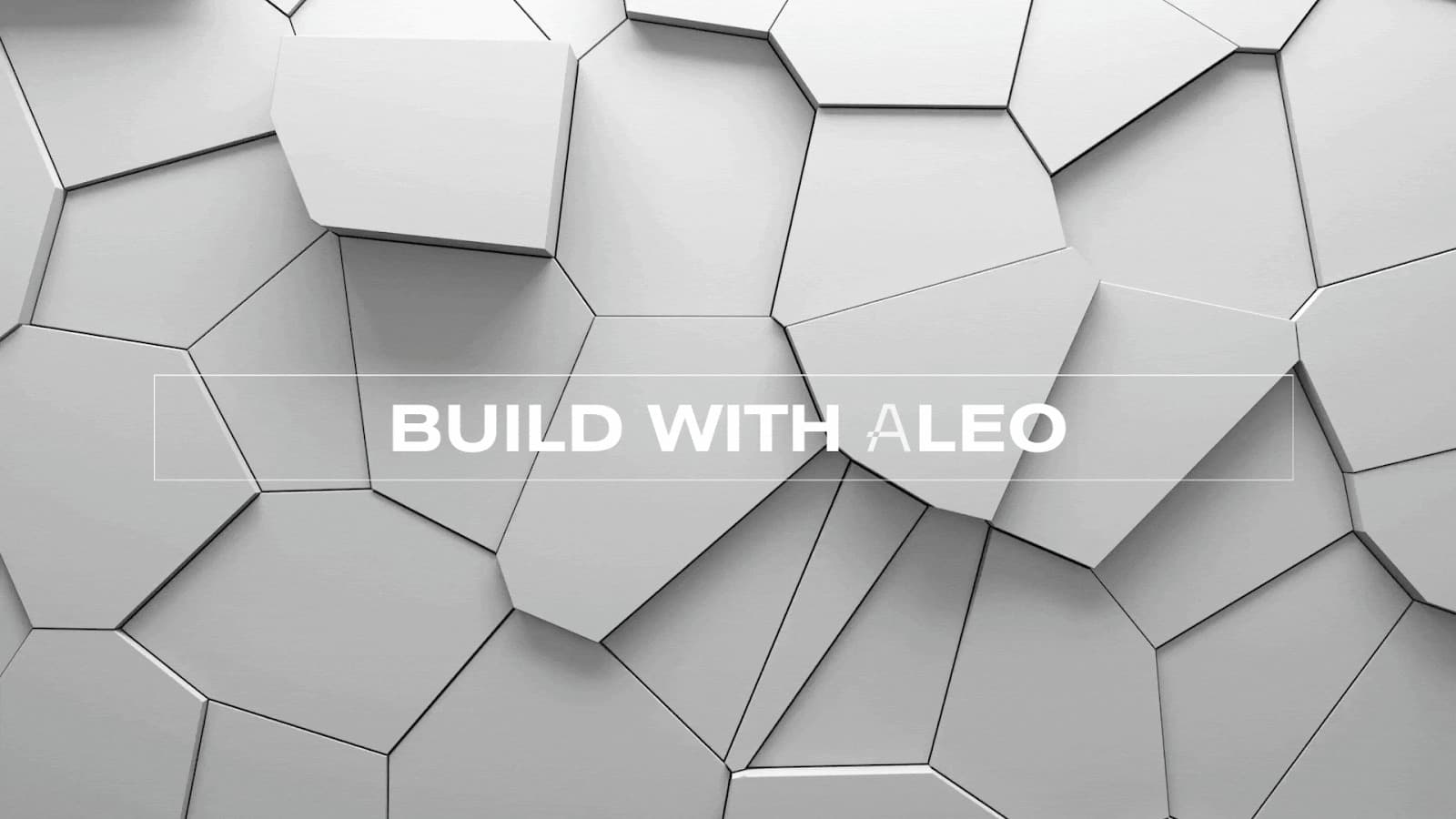
Comparative Analysis
As a strong privacy computing model in the blockchain and zero-knowledge space, Aleo will continue to develop a protocol that will accrue real value for its users as it evolves and grows.
The Aleo network offers a large-scale programmable zero-knowledge cloud computation and smart contract environment that is private-by-default. This is likely the very first of its kind in the industry, with many hailing the platform as state-of-the-art compared to many of its competitors.
Aleo’s snarkVM, snarkOS, and zkCloud platforms and other systems allow the Aleo network to be extremely well positioned moving forward. To expand on this more, we’ll compare Aleo with Zcash, Oasis Network, Mina Protocol, and the current Web2 cloud computing environment.
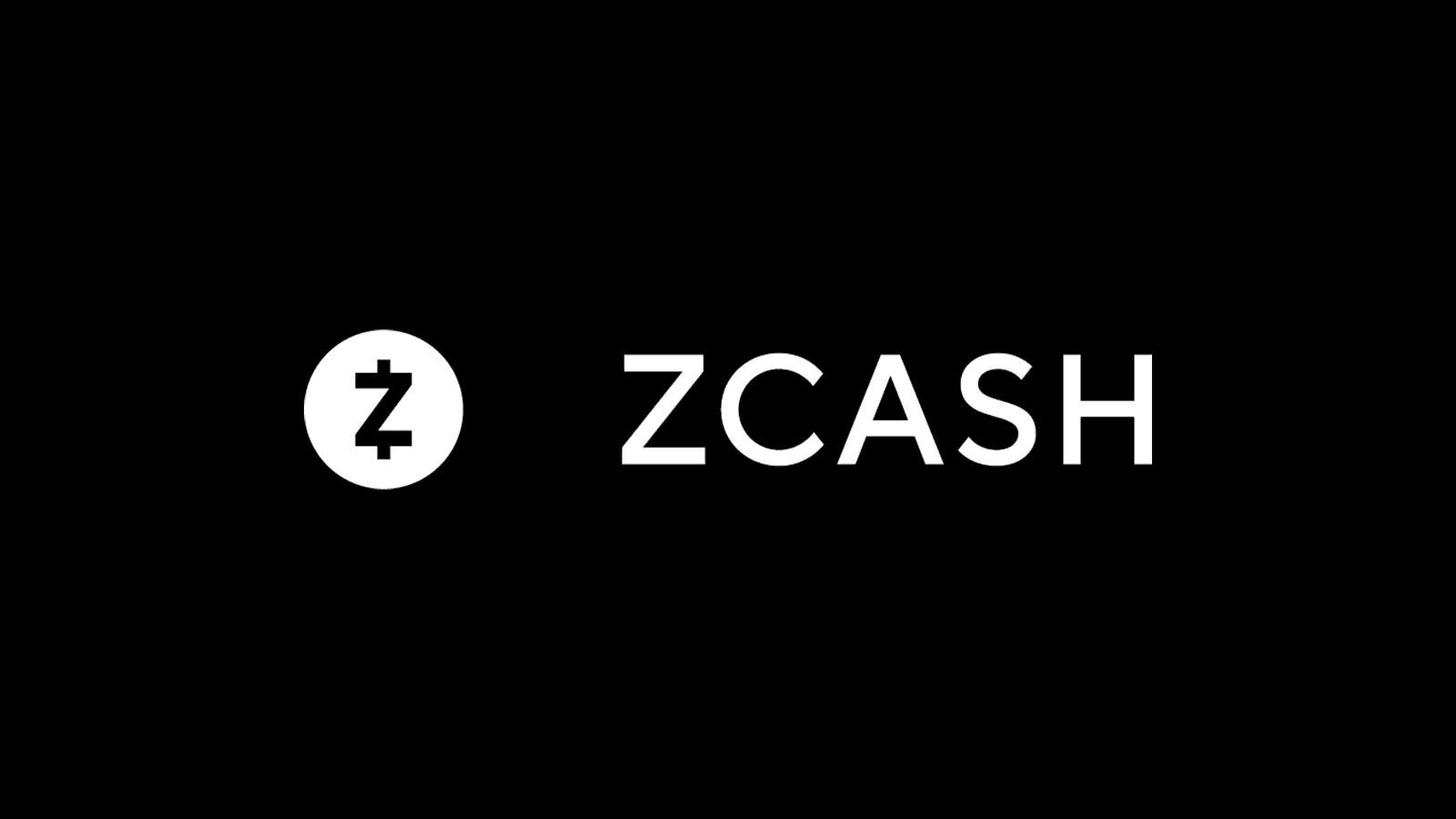
Zcash
The Zcash protocol was originally a Proof of Work (PoW) Bitcoin fork and became a trailblazing privacy-focused platform upon its October 2016 release. Zcash was one of the first blockchains to introduce zero-knowledge proofs (ZKPs) via zk-SNARKs. Zk-SNARKs allow one party to verify to another party that specific data is true without disclosing added sensitive data.
This capability was realized through a security-focused multi-party computation (MPC) framework called a Trusted Setup which was ultimately eliminated from the protocol. Zcash utilizes two main address types: t-addresses (transparent addresses) and z-addresses (private addresses).
Regrettably, scripted settlement Layer 1’s like Zcash are not programmable and don’t utilize smart contracts, extremely limiting their use in the current blockchain landscape. This means they are fragmented at the asset level (privacy usage is limited to a single asset (e.g., ZEC)) and the network level because of inadequate interoperability.
May feel that Aleo’s solution as a privacy-preserving protocol that implements smart contracts, an off-chain zkCloud framework, an in-house AI and ML-compatible programming language, and various additional functionalities represents a state-of-the-art blockchain solution compared to Zcash.

Mina Protocol
Mina Protocol is a privacy-centric blockchain that makes use of zero-knowledge proofs to enhance the privacy of blockchain applications by offering customizable privacy, enabling a nuanced approach to privacy-focused blockchain development.
In contrast, Aleo offers a completely private ledger with smart contracts, eliminating the need for users to opt-in to use its fully-fledged privacy features. While Mina uses ZK proofs, it doesn't always offer privacy by default, meaning users must take additional steps at times to ensure their transactions and data are completely private. Hence, the platform is mainly focused on transactional privacy and its lightweight design.
In addition, it can be argued that Aleo offers a much stronger developer ecosystem compared to Mina because of the fact it makes use of its own Leo programming language, enabling the creation of privacy-enabled applications in a simpler, more efficient manner.
On the other hand, Mina has built its own robust developer ecosystem, but because it does not have its own in-house language (it primarily utilizes TypeScript), it could possibly demand a steeper learning curve from prospective developers.
Aloe’s user-centric approach expands beyond transactional privacy and Mina’s lightweight design to support fully private applications on its blockchain and zkCloud computing layer, arguably making it more aligned with current marketplace demands moving forward.
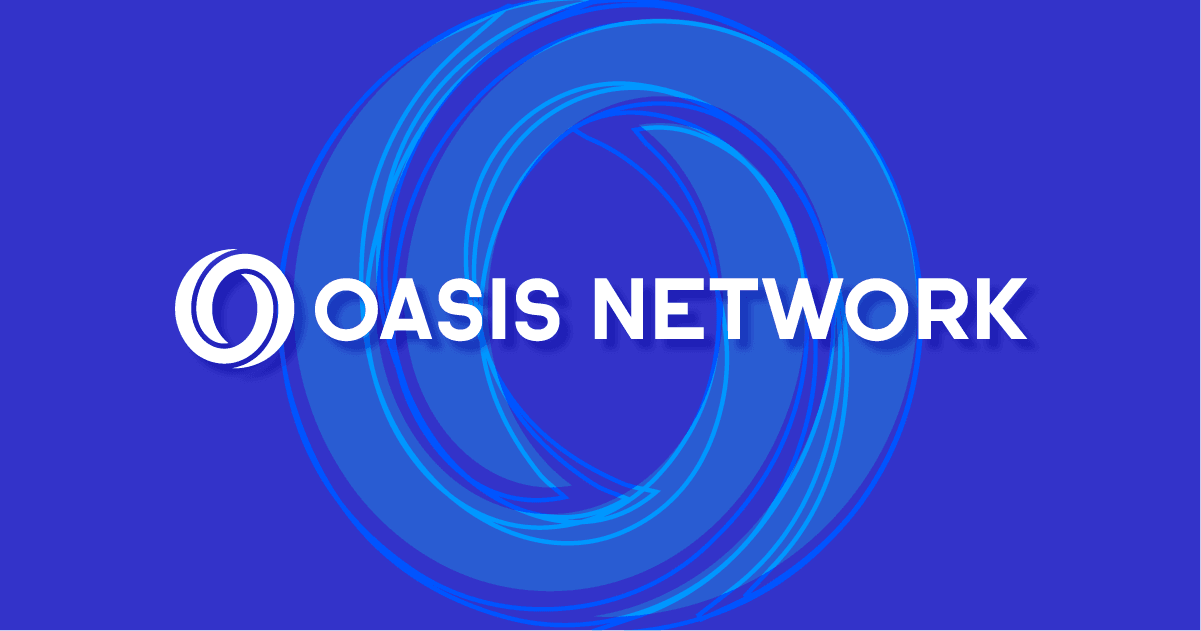
Oasis Network
Oasis Network is a privacy-preserving blockchain platform that utilizes a layered modular architecture to provide scalability, customizability, and flexibility on-chain.
Oasis makes use of its proprietary cross-chain Oasis Privacy Layer (OPL), enabled by independent blockchains networks called paratimes which are similar to Polkadot parachains. The OPL design creates a framework that allows developers to simply employ confidentiality within their dApps during development and deployment.
The Oasis Privacy Layer leverages a vast set of paratimes including Sapphire (flexible; enabling private to open EVM-compatible designs), Emerald (fully open and EVM-compatible), and Cipher (a private WASM and Rust environment) to offer different types of blockchain development environments.
This large spectrum of compute environments allows the Oasis protocol to easily implement new technology and use-case-specific iterations to keep up with the steadily evolving blockchain landscape. This includes EVM compatible frameworks compatible with the likes of BNB Chain, Polygon, Ethereum, and others.
However, like other privacy solutions, the Oasis network is not built to be fully private by default like Aleo, instead offering a customizable framework that allows for the creation of different types of dApps and protocols on its platform. This is not a negative, it simply represents a different model to Aleo, with Oasis possibly being compared to a more private version of Polkadot.
Though Oasis is quite advanced in its own way, Aleo’s offering as a fully private blockchain platform, its own AI and ML-enabled programming language, and off-chain cloud computation environment means Aleo is well positioned to achieve wide scale adoption in the privacy arena moving forward.
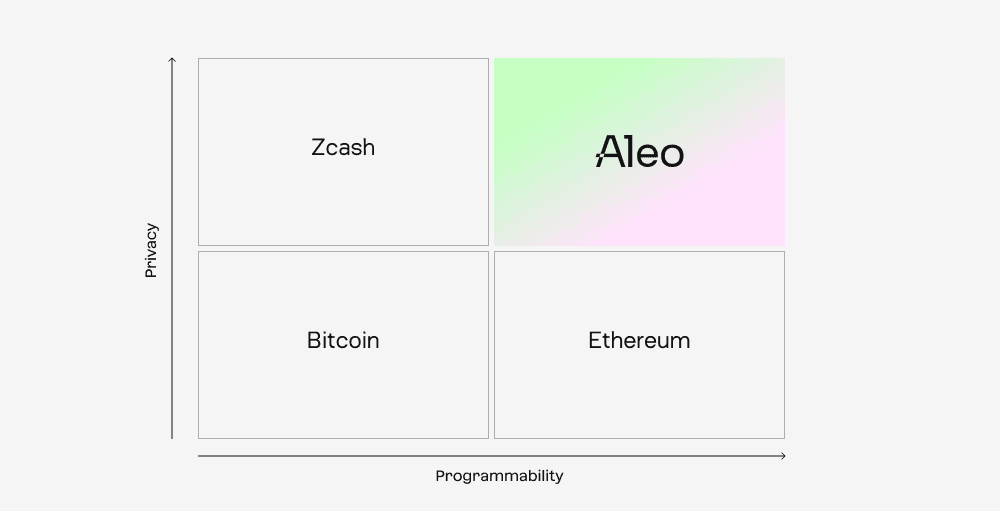
Blockchain Cloud Computing and Its Web2 Counterparts
When comparing Aleo to Zcash, Oasis Network, Mina Protocol, and other privacy frameworks such as Panther Protocol, Secret Network, and Namada, Aleo comes out on top in many respects. That said, these blockchains and others like them, do offer extremely innovative paradigms in their own right and there is no be-all-end-all solution to blockchain privacy.
That said, it is critical that privacy chains and other similar technologies developed in blockchain work together to form a more cohesive relationship with one another to push the industry forward. Only then can the industry collectively work to combat the many challenges we as a technologically-driven society face. This is especially true in terms of rerouting the stranglehold of power that centralized Web2 cloud computing giants hold over the world's cloud computing infrastructure.
Aleo’s privacy-focused cloud computation platform represents a more decentralized paradigm compared to centralized cloud platforms such as Amazon Web Services (AWS), Microsoft Azure, Google Cloud, Alibaba Cloud, IBM Cloud, and others. Web2 cloud computing has a massive market share globally, with AWS holding 75% of the market alone.
Find out more about ALEO in our blog post: Aleo (ALEO): A Privacy-Focused ZK Cloud Computation Network.
This overarching centralized cloud computing market is not sustainable for the long-term viability of technology and the collective good. For far too long have these monolithic centralized entities harnessed so much control, with users suffering the consequences even if they are unaware of their effects first hand.
This means that solutions such as Aleo and others have a tall task ahead of them to gain significant market traction. That said, it is imperative that decentralized blockchain-based cloud computing solutions work together to take some of this market share back.
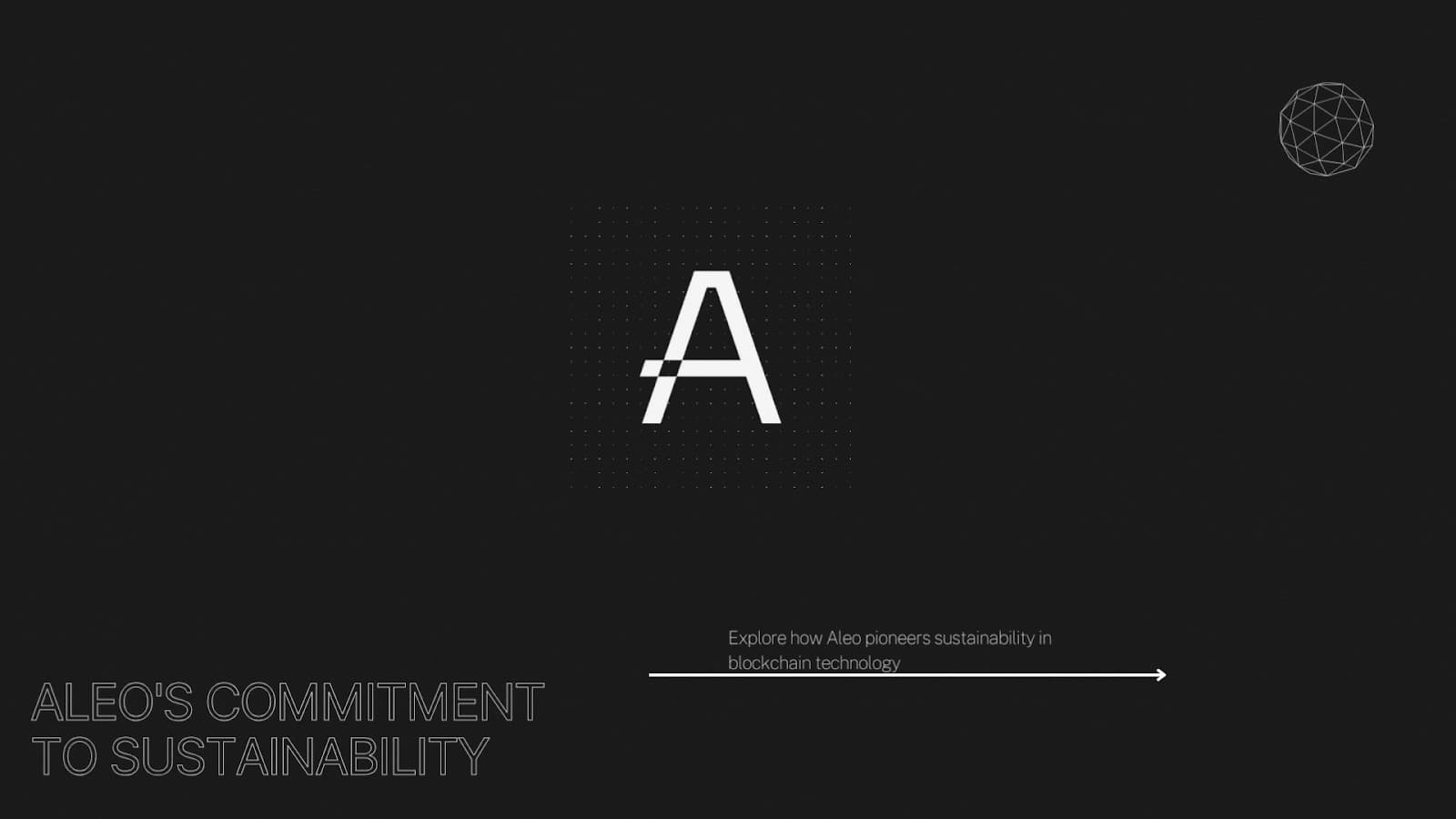
Compliance and Regulations
In recent years, privacy-preserving blockchain protocols have become a topic of controversy for regulators because of data sovereignty and its ethical complexities.
Aleo may be susceptible to some regulatory concerns moving forward because of its privacy focus and zero-knowledge design. Be that as it may, the project is arguably mainstream and enterprise-focused, especially because it has raised such a large amount of capital (298 million in total) from predominantly large American venture capital firms such as Andreessen Horowitz and others.
The amount of funding Aleo has raised puts it within the same stratosphere as projects like Sui and Aptos, meaning it is likely the project will not face regulatory concerns on a large scale. However, the fact remains that the US government and other global constituents don’t want users to hide wealth in crypto for tax avoidance and other reasons.
Another reason that may benefit Aleo’s susceptibility to regulatory scrutiny is the fact that it was built and designed in the Silicon Valley amongst a large set of heavyweights like Aptos, Sui, Facebook, Apple and many other traditional tech giants. Though blockchain enterprises are different from their traditional counterparts, Aleo’s affiliation with the University of California, Berkeley may also be a good thing because of the school’s standing in American academia.
In addition, it seems that Aleo has taken steps to work with regulators so they are better able to contribute to the development of ethical, responsible, privacy-preserving technologies like zero-knowledge proofs and others in a fully compliant manner.
It seems that Aleo has paid special attention to the customizability of the platform in terms of transactional privacy: offering fully private transactions, semi-private transactions, and fully open transactions. Hopefully this and other levels of customization will ease the minds of regulators with continued oversight and the compliant-focused evolution of the platform.
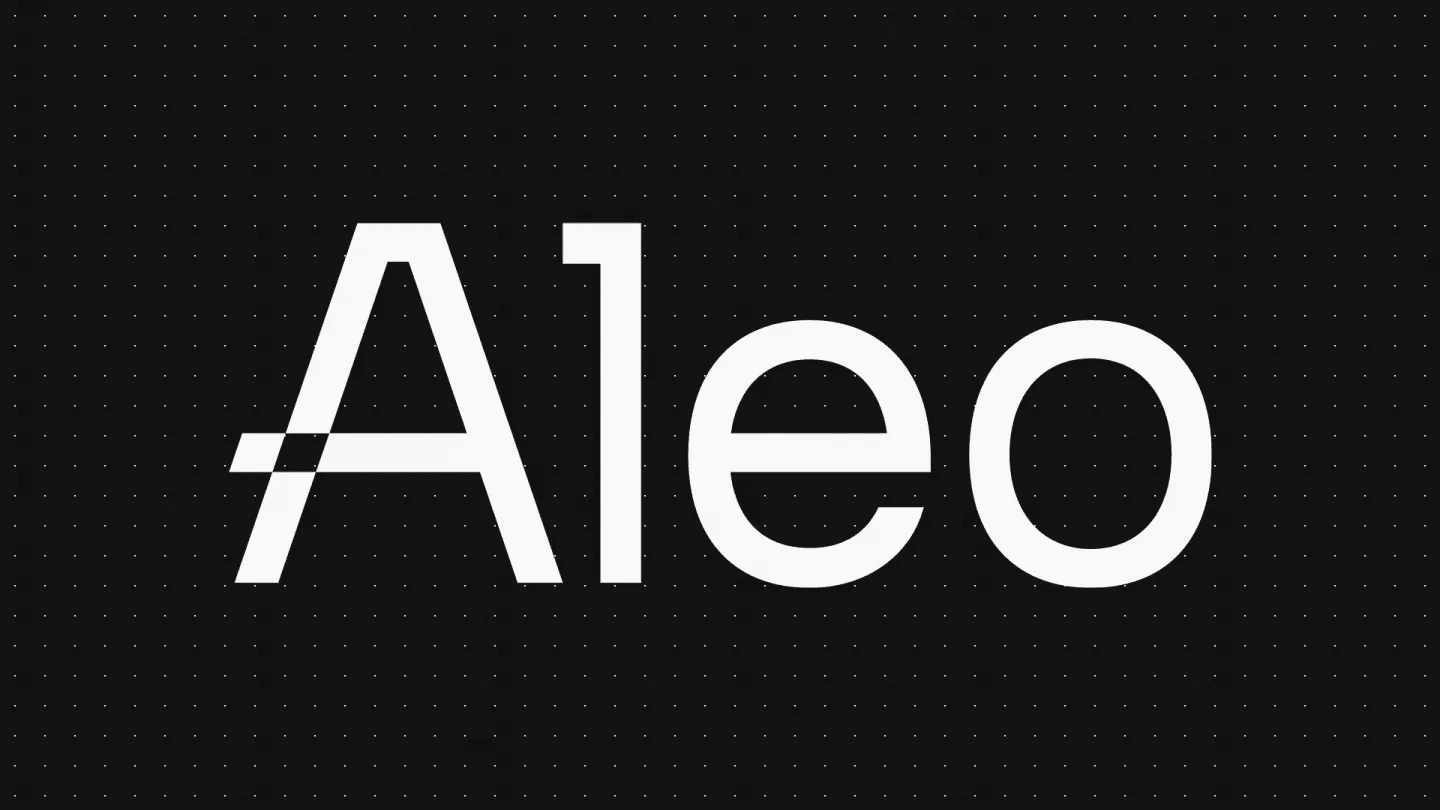
Diving Deeper into Aleo’s Long-term Potential
Privacy is a fundamental human right and Aleo’s solution to address privacy head-on through zero-knowledge proofs is a game changer for the blockchain and computing industries at large.
ZK tech has immense potential in a host of industries and should be leveraged by the companies that develop the technology, the conservatorship of internet and blockchain users, and by the enterprises, governments, and regulators that provision its far-reaching use.
The Aleo ecosystem offers numerous cutting-edge advancements compared to many existing privacy-centric blockchain solutions. These include a strong model for privacy-focused application, protocol, and smart contract development by combining the Aleo network, snarkOS, snarkVM, and zkCloud.
Aleo’s 298 million dollars in funding is extremely significant and it is quite rare in industry terms. This large amount of capital shows that large-scale investors believe in the project long-term, highlighting the fact that Aleo is a ZK-focused chain with game-changing technologies and the expertise needed to succeed moving forward.
This combined with the 4+ years of development that Aleo has undertaken so far shows the project has massive potential if all goes according to plan. The fact that the project has been in development for several years is also a good indicator of its long-term potential.
The Layer 1 blockchain space is crowded and competition between existing protocols is fierce, not to mention that many large Layer 1’s and Layer 2’s will be launching later in 2024, increasing competition even more. That said, there are no blockchain-focused cloud computation networks in today’s marketplace that are as highly advanced as Aleo’s ZK tech.
Regardless, it would be unwise to count Aleo out. It could be argued that the project is quite likely to reach its lofty aspirations. Although the idea of zero-knowledge combined with cloud computation as a smart contract-enabled Layer 1 is fairly nascent, the niche is likely to dramatically grow across the industry throughout the current bull cycle and beyond.
According to a recent developer report from Electric Capital, Aleo is one of the fastest growing new blockchain ecosystems in the industry. This fact, combined with many other factors we have discussed above, give Aleo a strong chance of succeeding in the blockchain privacy and ZK realm long-term.
Resources
The information provided by DAIC, including but not limited to research, analysis, data, or other content, is offered solely for informational purposes and does not constitute investment advice, financial advice, trading advice, or any other type of advice. DAIC does not recommend the purchase, sale, or holding of any cryptocurrency or other investment.
